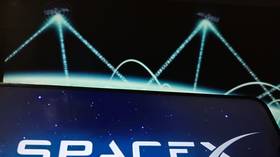EU vows to challenge Musk’s Starlink dominance – media

The European Commission and a consortium of three EU companies have announced the signing of a contract worth over €10 billion ($10.4 billion) to develop a new satellite network. The project aims to provide a homegrown alternative to Elon Musk’s Starlink, Bloomberg reported.
The signing was announced on Monday by the SpaceRISE consortium, comprising French satellite operator Eutelsat, Spain’s Hispasat, and Luxembourg-based operator SES.
Dubbed IRIS2, the project aims to “enable Europe’s strategic communications autonomy,” SpaceRISE said in a statement. The network of 290 satellites is expected to be fully operational by 2030. It will provide internet service to governments and militaries as well as private customers.
The EU is investing €6 billion to develop the project, while the consortium will commit €4.1 billion and the European Space Agency will provide €550 million.
“There is this narrative in the industry that Starlink has won and everybody else is dead, right? That’s not true,” Bloomberg quoted SES Chief Executive Officer Adel Al-Saleh as saying.
The EU’s new defense and space commissioner, Andrius Kubilius, hailed the signing of the contract as “a major step forward” for the EU’s security. Europe is “under threat in many ways,” Kubilius claimed, as quoted by Bloomberg.
“In times of war, we can’t afford to lose connectivity,” he added. Kubilius, a former Lithuanian prime minister, secured his post by stoking fears of a Russian threat and calling for a significantly greater investment in defense, Politico wrote in November.
The plans for IRIS2 have come under fire from Germany due to worries about the project’s cost. In May, Economy Minister and Vice-Chancellor Robert Habeck described the system’s price tag as “exorbitant” and demanded that the project be delayed.
Politico has also cited industry experts as warning that the project is too expensive and risks being outdated compared to SpaceX’s network. Starlink boasts more than 6,000 satellites and claims to beam internet to customers in some 100 countries.
Director General of the European Space Agency Josef Aschbacher stated at the time that though budgets are tight, the EU has to press ahead with building an encrypted communication satellite system.
Iris2 is the EU’s third flagship space project, after the Galileo satellite navigation system and the Copernicus Earth monitoring satellite constellation.














